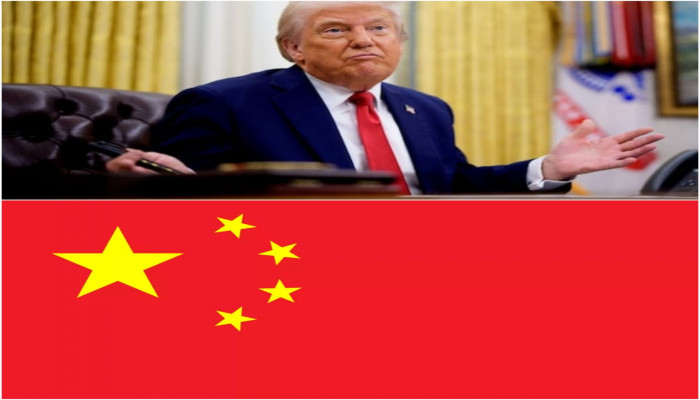Trump announces immediate 90-day tariff pause for all, raises reciprocal tariffs on 125% for China
- In Reports
- 11:37 AM, Apr 10, 2025
- Myind Staff
Donald Trump made two big tariff-related announcements on Wednesday, wrapping up a tense day of exchanges between the US and China. While he offered some relief to other countries, he stuck firmly to his hardline approach toward China. After the US hiked tariffs on Chinese goods to 104%, China hit back by raising its tariffs on American imports from 34% to 84%, intensifying the trade war between them. The US quickly responded with force. In a post on his platform, TruthSocial, President Trump declared an immediate increase in tariffs on China to 125%.
"At some point, hopefully in the near future, China will realise that the days of ripping off the USA, and other countries, is no longer sustainable or acceptable," Trump shared.
The billionaire also offered some relief to other countries affected by the tariffs, announcing a temporary 90-day pause on specific tariffs that exceed the baseline rate of 10%. Trump claimed that more than 75 countries had chosen to negotiate with the US without retaliating against the tariffs “in any way, shape or form”. He said he had given the green light for a 90-day pause, which would take effect immediately. He said this lack of retaliation was due to his “strong suggestion”.
"Conversely, and based on the fact that more than 75 Countries have called Representatives of the United States, including the Departments of Commerce, Treasury, and the USTR (United States Trade Representative), to negotiate a solution to the subjects being discussed relative to Trade, Trade Barriers, Tariffs, Currency Manipulation, and Non-Monetary Tariffs, and that these Countries have not, at my strong suggestion, retaliated in any way, shape, or form against the United States, I have authorised a 90 day PAUSE, and a substantially lowered Reciprocal Tariff during this period, of 10%, also effective immediately. Thank you for your attention to this matter!" President Trump wrote.
India has responded carefully to Trump’s latest tariffs, even after a 26% hike was announced last week. It has highlighted that a bilateral trade agreement with the US is currently being negotiated.
On Wednesday, "On the third, we had a detailed press release issued by the Ministry of Commerce, in which India's position was made clear. We are studying the implications of the tariffs that have been announced," Randhir Jaiswal, the spokesperson for the Ministry of External Affairs, stated. He continued, "Reciprocal tariffs and discussions are ongoing between India and US Trade teams for an expeditious conclusion of a mutually beneficial multi-sectoral bilateral trade agreement. India values its comprehensive global strategic partnership with the US and is committed to working closely with it... Both teams are in discussion, and hopefully, we can close it (the agreement)".
Indian markets, which had taken a hit after the tariff announcement, might see some relief now. This pause gives New Delhi more breathing room to negotiate a deal with the US and plan how to handle the tariffs if they return. While most countries, except China, may benefit from this break, it also highlights the lack of consistency in the Trump administration’s tariff policy. Despite sticking to the decision earlier, even as US markets suffered momentous losses and justifying it as short-term pain for long-term gain, this sudden pause signals a sharp shift in approach.
There’s been ongoing debate about whether the tariffs were meant to be a long-term policy or just a way to pressure other countries into negotiations. When Trump’s top advisors were asked about it, their responses varied; some leaned towards the idea of permanent tariffs, while others suggested the goal was to start talks. Even Trump’s response didn’t clarify things entirely, as he said, "There can be permanent tariffs - and there can also be negotiations because there are things that we need beyond tariffs."
However, on Wednesday, US Treasury Secretary Scott Bessent stated that Donald Trump’s approach had gone exactly as planned. "This was his strategy all along, and you might even say that he goaded China into a bad position," Bessent told AFP.







Comments